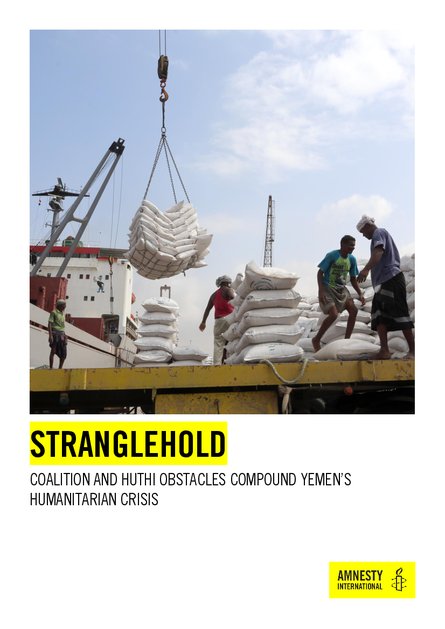
Three years into a full-blown armed conflict that has left more than 6,000 civilians killed, 10,000 injured and more than 2 million displaced, Yemen is enduring one of the world’s largest humanitarian crises, with an estimated 75% of the population in need of humanitarian assistance.
Amnesty International has examined the role of two major parties to the conflict in exacerbating the already dire humanitarian situation, documenting how the Saudi Arabia-led coalition have imposed restrictions on the entry of essential goods and aid such as food, fuel and medical supplies into Yemen, while the Huthi de facto authorities have obstructed the movement of humanitarian aid within the country.
Amnesty International carried out research into these issues between December 2017 and June 2018. It conducted interviews via voice calls and communicated via email with 12 aid workers, eight medics and five local community activists located in Sana’a, Hodeidah and Ta’iz. It also reviewed statements by the coalition, the internationally recognized Yemeni government and the Huthi de facto authorities, information published by the UN Office for the Coordination of Humanitarian Affairs (OCHA) and other UN bodies, as well as reports published by international NGOs and local monitoring groups and media articles.
